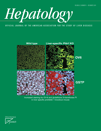Proceed with caution: Peginterferon alpha-2a versus peginterferon alfa-2b in chronic hepatitis C. A systematic review of randomized trials†
Potential conflict of interest: Nothing to report.
- 1
Two of the studies cited in Awad et al. (Sinha et al.4 and Kolakowska et al.5) were published as abstracts, without peer review.
- 2
Three of the articles used a stratified randomization. Two of them (Ascione et al.6 and Rumi et al.7) used a stratified randomization by genotype, and in the study by McHutchison et al.8, randomization was stratified by level of HCV and race.
- 3
Whereas most of the trials included treatment-naive patients, Laguno et al.9 worked with patients coinfected with human immunodeficiency virus and Scotto et al.10 included patients without response to previous treatment.
- 4
McHutchison included different races, and although five trials included patients infected with genotype 1 to 4, two trials included patients with genotype 1 (McHutchison et al.8 and Yenice et al.11), and Kolakowska et al. included only patients with genotype 3.
- 5
In the meta-analysis, 1016 patients with a lower dose of peginterferon alpha-2b were included.
Simultaneously, Alavian et al.12 presented a very similar article: “The Comparative Efficacy and Safety of Peginterferon Alpha-2a vs. 2b for the Treatment of Chronic HCV Infection: A Meta-Analysis.” Alavian et al. analyzed only five of the eight trials used by Awad et al. Alavian et al. reach nearly the same conclusion, but at the same time stated “A longer duration of maximum serum concentration compared with PEG-IFN-α2b (168 versus 48-72 hours) yields greater SVR and higher neutropenia in PEG-IFN-α2a recipients.” Both authors1, 12 mentioned some awareness about the quality of the meta-analysis and the studies included in it. We think that conclusion must be interpreted both in light of the included trials and considering the effects of other factors, such as baseline HCV level, sex, race, and genotype. We strongly believe more research is needed before it is concluded one peginterferon is better than the other.
References
David Kershenobich M.D., Ph.D.*, Linda Muñoz , René Malé , Jesús Gaytan§, Francisco Sánchez¶, * Laboratorio de Hígado, Páncreas y Motilidad, Departamento de Medicina Experimental, Facultad de Medicina de la UNAM, Hospital General de México, México DF, México, Unidad de Hígado, Departamento de Medicina Interna, Hospital Universitario “Dr. José E. González” Universidad Autónoma de Nuevo León, Monterrey, Nuevo León, México, Centro de Enfermedades Digestivas y Hepáticas SC, Instituto de Salud Digestiva y Hepáticas SC, Guadalajara, Jalisco, México, § Hospital de Infectología. Centro Médico Nacional “La Raza”. Instituto Mexicano del Seguro Social, México DF, México, ¶ Departamento de Gastroenterología. Instituto Nacional de Ciencias Médicas y Nutrición “Salvador Zubirán,” México DF, México.




